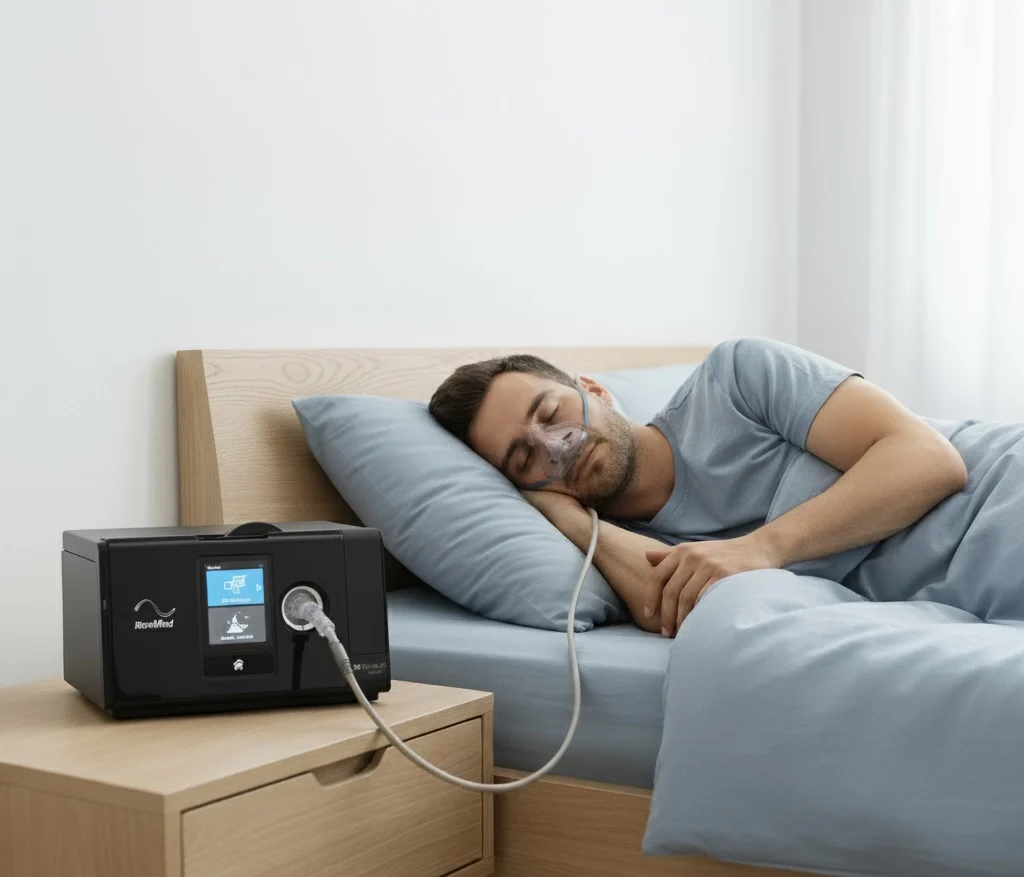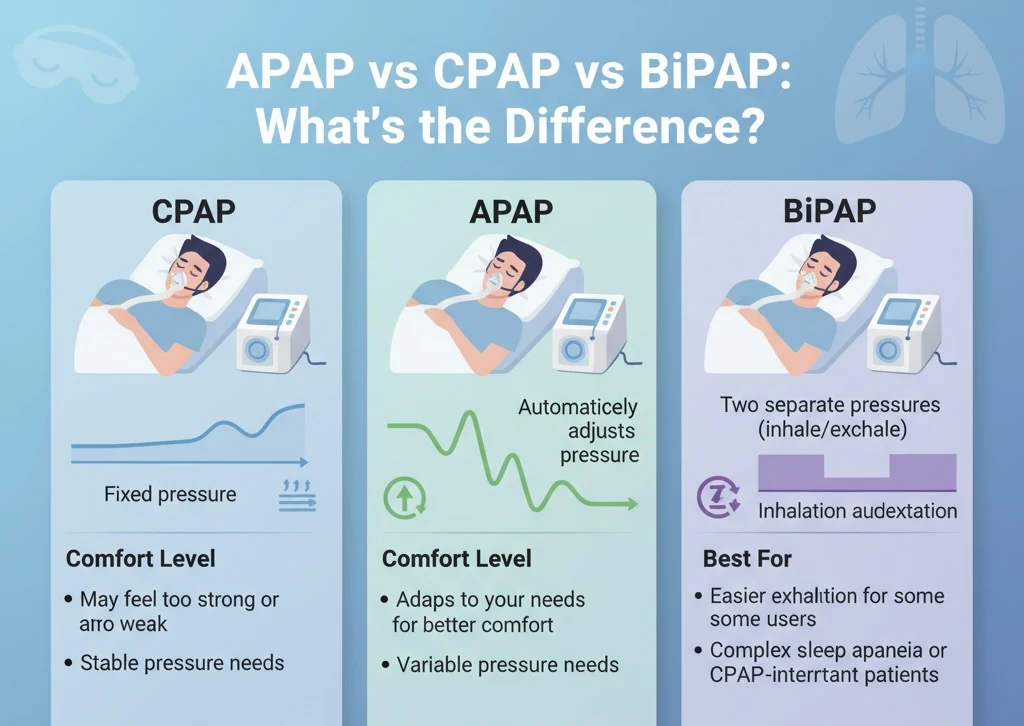

If you’ve recently been diagnosed with sleep apnea, you might have come across different treatment options like CPAP, BiPAP, and APAP machines. Among these, APAP (Auto-CPAP) machines are becoming increasingly popular — and for good reason. They combine the effectiveness of CPAP with smart technology to provide personalized pressure therapy while you sleep.
Let’s explore what an APAP machine is, how it works, its benefits, and how it differs from a standard CPAP machine.
APAP stands for Automatic Positive Airway Pressure.
It’s a type of PAP therapy device used to treat obstructive sleep apnea (OSA) by delivering pressurized air through a mask to keep your airway open during sleep.
Unlike a standard CPAP machine, which delivers one fixed air pressure all night, an APAP machine continuously adjusts the pressure levels automatically based on your breathing patterns. This means it gives you more pressure when you need it (like during REM sleep or when you roll onto your back) and less when you don’t.
An APAP machine uses built-in sensors and algorithms to detect:
When the device senses airway obstruction starting to occur, it automatically increases the pressure just enough to prevent the airway from collapsing. Once your breathing normalizes, it lowers the pressure to a more comfortable level.
This dynamic pressure adjustment makes APAP therapy more comfortable for many people, especially those whose pressure needs vary throughout the night.
Here are some major advantages of using an APAP machine over a traditional CPAP:

APAP machines are ideal for:
However, patients with central sleep apnea or certain respiratory conditions may not be suitable for APAP therapy and should consult their sleep specialist before choosing this device.
APAP machines represent the future of comfortable and effective sleep apnea treatment. By automatically adjusting pressure levels in real time, they offer a personalized, flexible, and more tolerable therapy experience.
If you’re beginning your journey with sleep apnea treatment or struggling with fixed-pressure CPAP, talk to your doctor about whether APAP could be the right choice for you.